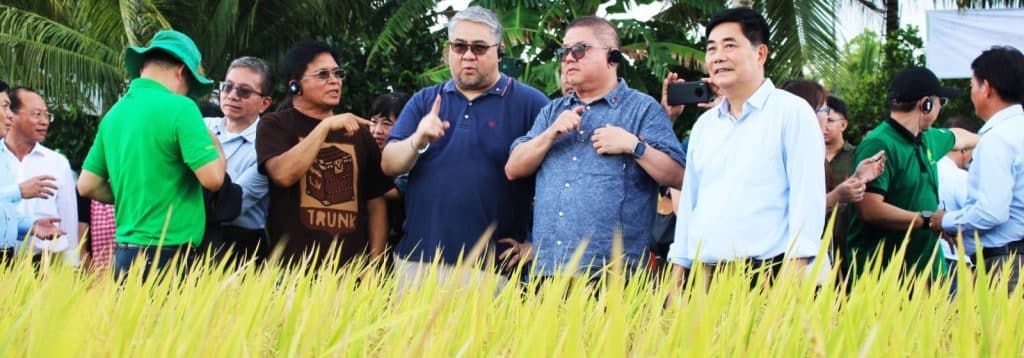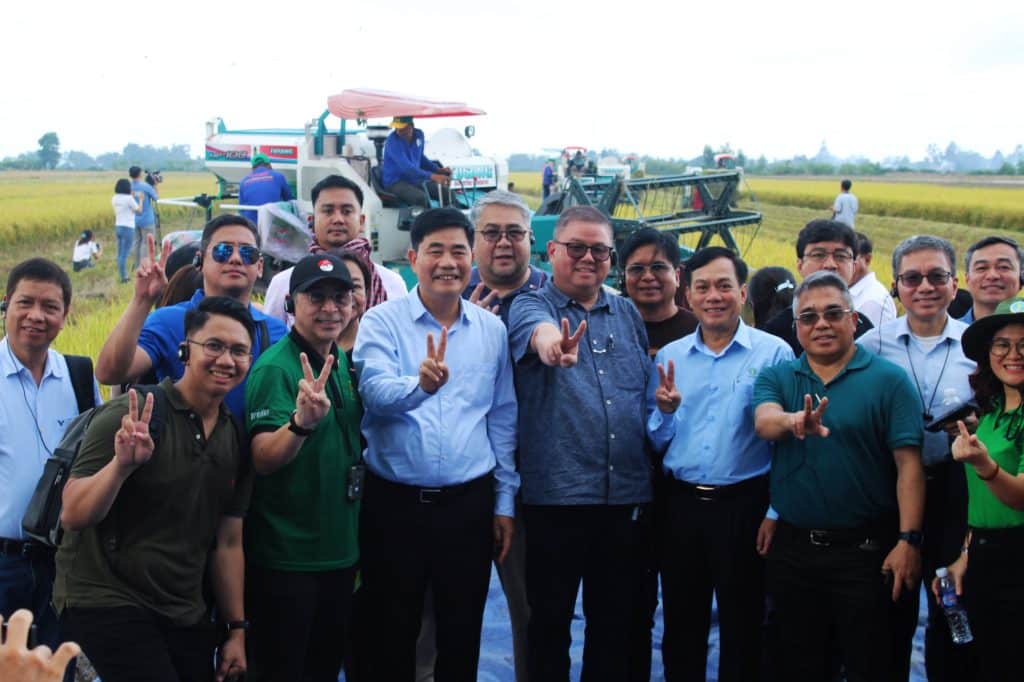Tags
Vietnam’s pilot low-emission rice farming shows promise: Increased yields, profits, and sustainability

A pilot farm in Vietnam has demonstrated success in high-quality, low-emission rice farming. Compared to traditional methods, it achieves higher yields and profits and reduces greenhouse gas emissions.The One Million Hectares Program emphasizes strong collaboration between input suppliers, rice purchasers, and farmers. It utilizes innovative techniques for sustainable practices that boost yields, profits, and broader adoption.
The Ministry of Agriculture and Rural Development (MARD) of Vietnam and the International Rice Research Institute (IRRI)featured promising results of a pilot farming under the Sustainable Development of One Million Hectares of High Quality and Low-Emission Rice Associated with Green Growth in the Mekong River Delta By 2030 Program.

The program aims to transform the country’s production system along the rice value chain, promote sustainable farming practices to enhance production and economic efficiency, and improve farmers’ incomes and livelihoods.
The rice farming model uses an innovation package of certified seeds, mechanized direct-seeded rice combined with fertilizer deep placement, alternate wet and dry water management, site-specific nutrient management, integrated pest management, combined harvesters, and rice straw-based circular economy.
The program’s initial outputs were presented at the Harvesting Day and Seasonal Review Meeting in Can Tho City.

“The pilot model using mechanized direct-seeded rice combined with fertilizer deep placement achieved 6.3 – 6.5 tons/hectares (t/ha),” IRRI scientist Nguyen Van Hung reported. “In comparison, broadcast seeding in non-model farms reached only 5.8 t/ha.” Dr. Hung added that the pilot model increased profits of 200 USD/ha per hectare and reduced greenhouse gas (GHG) emissions of at least 2 tons CO2 eq/ha.
According to Thuan Tien Agricultural Service Cooperative Director Nguyen Cao Khai, the pilot model using OM-5451 rice variety has brought higher economic benefits than traditional farming. Under the model, the harvest commanded 200 – 300 VND/kg, which is higher than the prevailing market price.
Cao Duc Phat, chair of IRRI’s Board of Trustees (BOT), expects the emission-reducing rice cultivation model will spread throughout the Mekong River Delta.
“This will help farmers have better income and life while fulfilling Vietnam’s international commitment to reducing GHG emissions and combating climate change,” Dr. Phat said.

Le Thanh Tung, deputy director of the Department of Crop Production under MARD, emphasized the importance of a solid and collaborative relationship among input enterprises, agricultural material suppliers, and rice-purchasing enterprises for farmers.
According to Mr. Tiung, this collaboration should be genuine and ensure that all parties fulfill their commitments. He also believes local projects could replicate the model’s initial success in Can Tho and other provinces.
The meeting also served as a knowledge-sharing event between Vietnam and the Philippines. Philippine Agriculture Department Secretary Francisco Tiu Laurel Jr. and his team attended the event to learn about Vietnam’s experience implementing the One Million Hectare Program. Mr. Tiu is also an ex-Officio member of the IRRI Board of Trustees.
https://www.irri.org/news-and-events/news/vietnams-pilot-low-emission-rice-farming-shows-promise-increased-yields-profitsPublished Date: July 24, 2024






